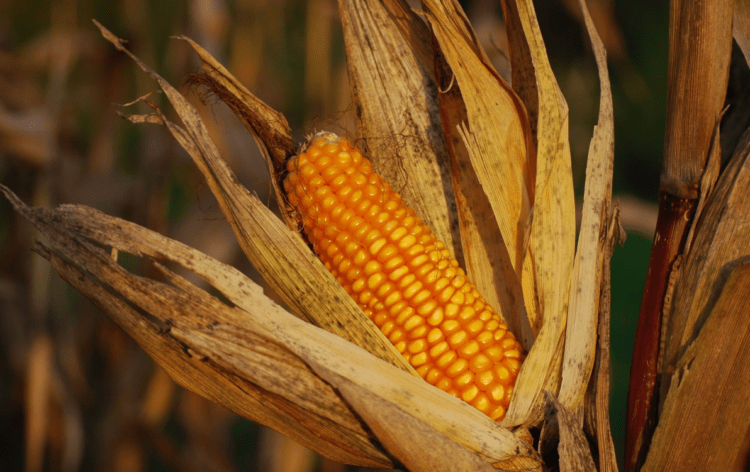Understanding Corn Commodity Trading: Trends and Effective Strategies

Corn corn commodity market is a significant global industry worth billions of dollars. The process of corn commodity trading includes the purchase and sale of futures contracts, which symbolize a contract to supply a definite quantity of corn at a predetermined future date and cost.
However, like any commodity market, corn trading is subject to a variety of factors that can influence prices, including weather patterns, global supply and demand, and geopolitical events. Successful corn traders must have a deep understanding of market trends and the ability to manage risk effectively, utilizing hedging strategies to protect against price fluctuations.
In this article, an overview of trading in corn commodities will be presented, covering aspects such as major market participants, variables impacting prices, and effective trading approaches.
Useful Details About Corn Commodity Trading
Corn commodity trading is a popular market for traders due to its versatility and importance in the global economy. Corn is used for a variety of purposes, including animal feed, ethanol production, and food products. This makes it an important commodity for both agricultural and industrial sectors, and a staple for consumers around the world.
One of the biggest trends in the corn commodity market is the growing demand for sustainable and ethically produced corn. The consciousness of consumers about the environmental impact of industrial farming methods has increased, and they are now more inclined to opt for products that are responsibly farmed and sustainably sourced.
Another trend is the impact of government policies on corn prices. Governments around the world provide subsidies to farmers or restrict exports to protect domestic industries, which can lead to price fluctuations and volatility within the market.
The use of futures contracts is a primary aspect of corn commodity trading. Traders can use contracts to buy or sell corn at an agreed-upon future date and price, which helps them manage their risk by securing prices and guarding against fluctuations.
The primary participants in the corn commodity market are the United States, Brazil, and Argentina. These countries are the top producers and exporters of corn, and their policies and market trends can significantly impact worldwide corn prices. For example, the United States is the largest producer of corn in the world, and its policies on corn subsidies and exports can greatly impact corn prices globally.
Overall, the popularity of corn commodity trading can be attributed to its importance in the global economy and the versatility of its use. Corn is a staple commodity that is used in a wide range of industries, and its demand is expected to continue to grow in the coming years. However, like any commodity market, corn trading can be volatile and impacted by a variety of factors, including government policies, weather conditions, and global supply and demand. In order to succeed in the corn market, traders need to analyze these factors and make informed decisions.
Challenges You Should Avoid in The Corn Commodity Market
Like any commodity market, the corn market has its fair share of challenges and risks that traders and investors need to be aware of. One of the most significant issues is the impact of weather patterns and climate change on corn production. Droughts, floods, and other extreme weather events can disrupt the supply of corn and cause price volatility, making it difficult for traders to make informed decisions about buying and selling corn futures contracts.
Another challenge in the corn commodity market is the influence of government policies on corn prices. Subsidies, tariffs, and import/export restrictions can impact supply and demand, leading to market instability. For example, the US government’s ethanol mandate has led to increased demand for corn as a biofuel, driving up prices and causing ripple effects throughout the supply chain.
Furthermore, the prevalence of genetically modified organisms (GMOs) in corn production has also created sustainability and ethical concerns. Consumers are increasingly demanding non-GMO and organic products, which can lead to price premiums for sustainably produced corn. However, ensuring the authenticity of these products and addressing concerns about sustainability and ethical practices in corn production can be challenging.
Finally, the use of complex financial instruments and high-frequency trading in the corn market can create additional risks for traders. These practices can increase price volatility and create a disconnect between the futures market and the physical corn market, leading to price distortions.
To address these challenges, traders and industry stakeholders must collaborate to create sustainable and ethical practices that prioritize the long-term health of the corn industry. This could include investing in more resilient farming practices, such as conservation tillage and crop diversification, to reduce the impact of extreme weather events on corn production. Additionally, greater transparency in the supply chain can help to address concerns around sustainability and ethical practices in corn production.
Overall, the corn commodity market presents a range of challenges and risks for traders and investors. Nonetheless, if efforts are made to tackle these problems and encourage sustainable practices, the corn market can persist in offering benefits and possibilities for all the players involved in the industry.


























Comments (0 comment(s))